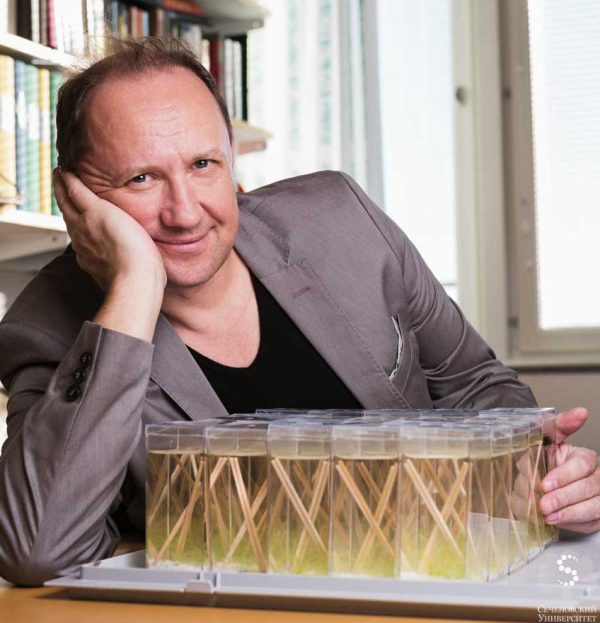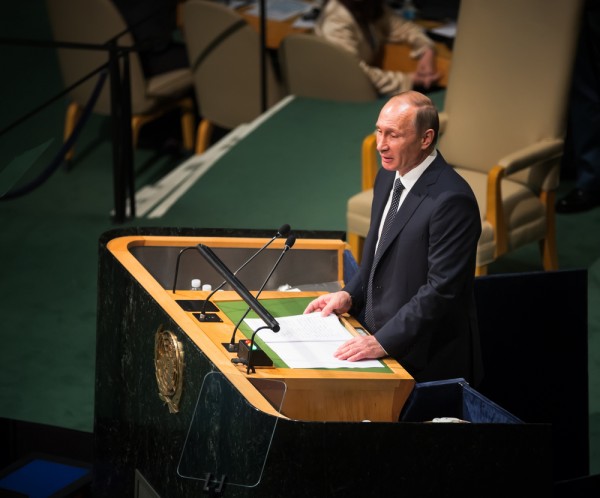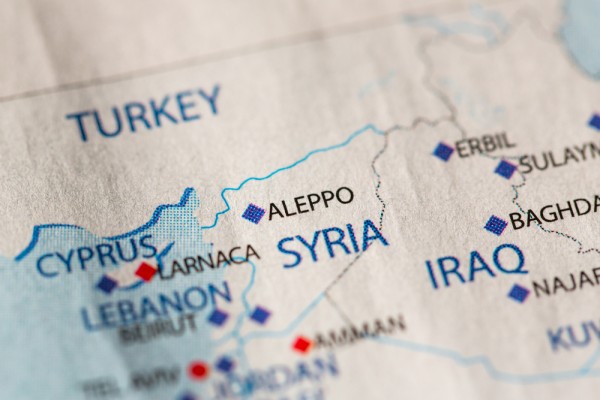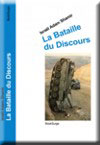
I love scientists but they will kill us all, said Jon Stewart on The Late Show with Steven Colbert . Science eased our suffering due to a pandemic that was most likely caused by science, he told the audience. (Here you can find an acerbic response to the show on the Unz Review) Is it true? Do science and the scientists save us or kill us? How far can we trust them? It has become a relevant question for now they are not satisfied to stay in their labs but rather aspire to govern us as Anthony Fauci and his ilk do.
This aspiration emerges from an Open Letter by Nobel Prize laureates and other dignitaries who demand that we cede to them the planetary stewardship the Church had, or claimed to have in the Middle Ages. Such a mind-boggling pronouncement passed without attracting much attention; this says more about the mass media than about the magnitude of the event itself. After all, since the 11th century, nobody has yet claimed to guide the whole of mankind.
The letter, called “Our Planet, Our Future: An Urgent Call for Action,” claims that Science is the new Church of mankind, benevolent and wise. “Science is a global common good on a quest for truth, knowledge, and innovation toward a better life. [We want] to promote a transformation to global sustainability for human prosperity and equity. Global greenhouse gas emissions need to be cut by half and destruction of nature halted and reversed.” They claim Covid-19 is a “zoonotic disease”, carried by bats and pangolins – the letter was published in the end of April, just before the miraculous U-turn of the scientific consensus on this point. The scientists propose seven principles of governing our lives, and some of them are very far-reaching. Should we accept their recommendations?
To discuss this, I went to one of the leading contemporary scientists, Prof. Roman Zubarev. He is a daring and outspoken man who is not afraid of speaking his mind – a rare quality amongst this rather shy multitude! Roman Zubarev heads a laboratory in the Karolinska Institute, arguably the best scientific institution in Sweden which has been heavily involved with the selection and nomination of Nobel Prize winners. In an impressive first, he formed a living cell from dead matter. He discovered Isotopic Resonance, a phenomenon related to the creation of life.
• • •
ISH: Recently Nobel Prize laureates got together and published “An Urgent Call For Action” to mankind, in the name of science. It seems they want to form a world government, an age-old dream of various visionaries all the way from HG Wells and Shaw up to Schwab and Gates. What do the scientists actually suggest, and should we, mankind, heed their call?
RZ: I was simultaneously puzzled, disturbed, elated and provoked by that call. Usually, when a Nobel Prize winner speaks, it is worth paying attention. Here, a whole company of Nobel laureates and other esteemed experts has crafted a Letter. I have read it multiple times, trying to understand the deeper meaning, hidden underneath what appears to be virtue signaling – calls for all things good and against all things bad. But I wouldn’t think of criticizing them if not for the long-standing tradition of peer review in research. The scientists that crafted and signed the Letter must be well accustomed to relentless critical analysis of their writings by often – but not always – anonymous reviewers. Thus I thought it best to treat the Letter as if it was a research manuscript submitted for publication.
ISH: And what is your verdict?
RZ: The Letter presents a very uneven landscape of some deep thoughts and some apparently rather shallow suggestions.
One particularly striking thought is spread thinly across the Letter. I had to pick up one relevant sentence here and another one there to assemble a complete and coherent message. Here it is: Our world is in danger due to two factors – degrading environment and inequality, and without solving the latter one can’t solve the first.
They talk about global transformation and say that an essential foundation for this transformation is to address destabilizing inequalities in the world. They also quote Joseph Stiglitz, Nobel Memorial prize laureate of 2001, who said The only sustainable prosperity is shared prosperity. Of course, Karl Marx has said essentially the same 150 years earlier.
It appears that now the world’s top scientists are calling for a global revolution as Marx did in his time. That appears to be the most logical conclusion one can arrive at after a careful reading of the Letter.
First the Authors admit, to their great credit, that science is not a solution to the world’s greatest problem but rather an essential component of that problem. They say: On aggregate, technological advancements so far have accelerated us down the path toward destabilizing the planet. They also say that scientific progress has led to greater levels of urbanization, and urbanization is exacerbating existing, and creating new, inequities.
Furthermore, to their additional credit they implicitly blame capitalism as a socio-economic system: While all in societies contribute to economic growth, the wealthy in most societies disproportionately take the largest share of this growing wealth. This trend has become more pronounced in recent decades.
When you distill the message, it is pretty clear – if we don’t want to lose the planet, we need to fix it within this decade, and to do that we need to change the global socio-economic system. No amount of scientific advances can be a substitute for such a change, as in capitalism technological achievements can only exacerbate inequality. That’s pretty revolutionary!
ISH: What do they suggest in practical terms?
RZ: Not much. It appears that, as scientists, they are more interested in diagnosing the problem and outlining a generalized solution rather than giving realistic advice.
In a practical sense there is a mixed bag of seven suggestions. The one in Policy is most closely related to the socio-economic system. However, it sounds strange and weak: to complement the current metric of economic success, gross domestic product (GDP), with some kind of measures of true well-being of people and nature.
I am not an economist and maybe this is a great suggestion. But to me it sounds similar to a proposal of merging the US dollar with “likes” in order to create a new world reserve currency. As far as I know, GDP is just a number used in economic reports, and it has little bearing on real-life economic processes, not to mention the structure of the socio-economic system. There are already a number of socio-economic indexes ranking the countries, and it’s unclear why more indexes would solve the inequality problem.
One suggestion in Finance & Business also sounds a bit weak: businesses must recycle more. But then they suggest that economic, environmental, and social externalities should be fairly priced. I remember Brezhnev’s demand, much ridiculed in the former USSR years past his demise in 1982, that “the economy should be economical”. But unlike Brezhnev’s toothless declaration, this one quickly grew teeth in form of the recent EU carbon tax. Unfortunately, these teeth seem to be biting the third-world hand that feeds them.
There are still some other good suggestions. In Education, the Letter calls for teaching in universities of planetary stewardship. That’s nice! I hope that the curriculum includes Vladimir Ivanovich Vernadsky’s Biosphere published almost a century ago in 1926. It’s about time we thought of our planet as a single system that doesn’t recognize artificial country borders. Of course one has to be careful so as not to create a monstrous and oppressive world government. With countries’ diversity, dissidents can still find refuge somewhere – we can’t risk losing this.
Another good suggestion is found in Business: we must develop new business models for the free sharing of all scientific knowledge. I couldn’t agree more! Due to the existing copyright situation, university libraries are forced to pay exorbitantly for getting access to the publications that we scientists write and review for free. Researchers that don’t have the privilege of access to well-funded university libraries are asked to pay several dozen dollars to read a single paper that may be just a few pages long.
This is now changing, but the main battle for setting information free is still in the future. A few existing but relentlessly hounded “pirate” web sites offering free downloads of scientific literature have arguably done more to promote science in the less developed world than major Western universities.
The rest of the suggestions in the Letter seem to be full of contradictions and misconceptions. Mission-Driven Innovation, for example, calls for large-scale collaboration between researchers, government, and business, while the Letter admits elsewhere that 100 years of such collaboration has resulted in exacerbation of world’s worst problems.
In Information Technology the suggestion that Societies must urgently act to counter the industrialization of misinformation sounds dangerously close to a call for global censorship of social media. Such a thought should be foreign to any scientist truly adherent to Magna Charta Universitatum’s principle that freedom in research and training is fundamental for university life.
Equally puzzling is the call in Education to teach only scientific consensus. The Authors and Signees must know better than anybody else that scientific consensus is mostly used in science for the so-called “null hypothesis” which must be proven false by every new scientific discovery. And since education and research according to Magna Charta are inseparable, teaching only ‘scientific consensus’ means researching mostly within the null hypothesis. If implemented, this suggestion would likely result in the death of the modern science as we know it and in resurrection of the zombie corpse of scholasticism.
History is often cruel enough to let doctors taste the bitter medicine they prescribe. It’s an old story: two thousand years ago, Li Si institutionalized “five pains” punishments, and was himself subjected to them in due time. Those who cry for the political persecution of dissidents get persecuted themselves; just look at Trotsky. Those who advocate censorship will get censored themselves – the examples are too many to cite. Apparently Nobel prizes are not given for the knowledge of history.
And the history payback can materialize pretty fast. On the official signature date of the Letter, April 29, the ‘scientific consensus’ was that SARS-Cov2 was a natural virus, and the Letter dutifully blamed the Covid-19 pandemic on the destruction of natural habitats, highly networked societies, and misinformation (!). Now the growing consensus among independently-minded scientists and the general public alike is that the virus is a lab creation. Does this emerging consensus mean that the Letter spreads misinformation and has to be banned from social media? A rhetorical question, of course.
ISH: What else caught your attention?
RZ: The meandering strength of the scientific arguments that our world is doomed unless… The Letter talks about the survival of all life on this planet, a pretty high stake, and yet all we can say for sure is that we are 1.2°C above the pre-industrial (1850-1900) level. This doesn’t sound too much, especially knowing that half of that value had already been achieved in 1940s, when the CO2 emissions due to human activity were much smaller.
Even the statement that we are experiencing the warmest temperature on Earth since the last ice age some 20,000 years ago doesn’t sound too dangerous – at that time, trees grew above the Arctic Circle.
The Letter also says that we are losing the Earth’s resilience, but environmental resilience is hard to overestimate: in Northern Siberia, for example, average temperatures fluctuated between 46,000 to 12,000 years ago by some 20°C, and yet the living environment remained stable.
The Letter also says that there is a danger of >3°C warming in 80 years, which hasn’t happened for at least 3 million years. But even assuming that this projection is more accurate that the previous failed catastrophe predictions, 50 million years ago the Earth was much warmer than that. Palms growing in the Arctic region and in Antarctica are hardly consistent with the projected death of all life on the planet.
I am not against the notion that the global climate is changing, and it is a plausible hypothesis that human activity is contributing to it. But what worries me is that, when talking about climate change, the Letter doesn’t mention the positive effects of global warming, such as the land productivity increase in the vast northern part of the Northern hemisphere. In general, there seems to have been a shortage of competent ‘pro’ and ‘con’ climate change discussions recently. Hand-waving arguments without reliable and testable computer modeling are not instilling confidence. Disturbingly, discussions of the positive effects of global warming are being banned today in mainstream media.
And even if a thorough analysis will show that the ‘cons ‘prevail, and that human-induced global climate change is bad for humanity, the cure may still be worse than the disease. The Letter says that Global emissions of greenhouse gases need to be cut by half in the decade of 2021-2030. Compare this with the global effects of the Covid-19 pandemic – in 2020 carbon emissions from energy use fell by 6.3%, but the world’s GDP shrunk almost equally, by 5.2%. What impact on the global economy will a 50% reduction in fossil fuel production and consumption have, in view of the economic need for reliable energy sources? The intermittent “renewables” are already maxed out almost everywhere in the developed world, and not much more can be added without making the energy supply unreliable. We have already pushed this green sustainable energy envelope pretty hard, and if the new generation of environmental zealots knows something that the previous one didn’t, they should share this knowledge with the world.
Perhaps it would be more honest to admit that we are experiencing Peak oil, and no matter what we do now and how much a barrel of oil is going to cost, the production of marketable oil will inevitably go down. That has already happened once with conventional oil in the middle of 2000s, but then the American cavalry came to world’s rescue, untapping the shale oil potential. That solution worked for a while, but turned out to be just a temporary fix. Now oil production decline seems inevitable, and according to some projections, it could reach 50% by 2030. If this happens, the Authors’ wishes as well as the EU’s plans to cut carbon emissions by 55% compared with 1990 will be fulfilled automatically.
Or they may not be, because these days one needs to burn a lot of oil to produce some commercial oil. And in the past with Peak oil one needs to burn more and more oil to produce less and less marketable oil. And all that burned oil converts to CO2. That’s probably why such an (ostensibly) ‘environmentally conscious’ country as Canada, instead of decreasing its level CO2 emissions, has increased it by 3% between 2016 and 2019, and since 1990 the increase is over 21%.
Thus it stands to reason that past Peak oil fossil energy production declines may be accompanied with a simultaneous increase in overall CO2 emissions. Worse yet, the artificial reduction of oil consumption is intended to keep oil prices down, but when the cost of extracting a barrel of oil exceeds the market value of that barrel of oil, extraction simply stops. And with that world production of most other goods, including food, will also halt. We will then be reduced to using draft animals for farming and what in some places was euphemistically called nightsoil for fertilizer. That, and not global warming, is the truly nightmarish scenario.
But whether global warming is used as a cover for running out of economic oil or not, the decarbonization problem may just be too complicated to be reliably modeled today. The Letter admits that No one knows for sure what will work. If this is the case, the environmental zealots can only be blamed for over-selling their unreliable projections rather than purposefully wrecking the world economy.
The abrupt drastic reduction in fossil fuel consumption, no matter whether it is caused by the physical absence of oil or political prohibition of its usage, will almost certainly wreak havoc on the world’s economy. The EU hopes to insulate itself from that havoc by investing 1.8 trillion Euro into the implementation of its 55% CO2 reduction scheme and related measures. Simultaneously, the already mentioned carbon tariffs are being introduced (carbon border adjustment mechanism, CBAM). They are ostensibly aimed at leveling the playing field but in reality they are hurting many developing countries, such as Mozambique, Guinea, Sierra Leone, Ghana, Cameroon, Zimbabwe, etc. How does this damage to the third world square with the aim of reducing global inequality? Not much, but some peoples must foot the bill for the Western environmentalists’ dreams, and they appear to be those of the poor countries.
Since the Letter warned that climate change [is] expected to worsen inequality, and inequality is declared to be the root problem, EU actions should make the Authors and Signees furious. How could the EU act on global climate without addressing first the inequality problem, and in fact, risk increasing the global inequality?
The Letter calls for planetary stewardship by the 193 nations that have adopted the United Nations Sustainable Development Goals (SDGs). Have all these nations, or at least their majority, approved the EU’s CBAM carbon taxation? If not (and I sincerely doubt they did), there seems to be a major violation of the Letter’s call for collective decision-making.
This could be a litmus test for the Letter’s sincerity. If the Authors and Signees raise their voice scolding the EU for putting the cart before the horse, they will deserve kudos. But if they remain silent or endorse the EU’s course of action – the Letter can be dismissed as mere virtue signaling.
Given the Authors and Signee’s credentials, that would be a big disappointment. But one could probably be forgiven for not holding one’s breath awaiting a satisfying outcome. After all, there are signs in the Letter that the Authors themselves don’t take it very seriously. For instance, the ending is anticlimactic: The long-term potential of humanity depends upon our ability today to value our common future. Ultimately, this means valuing the resilience of societies and the resilience of Earth’s biosphere.
Wait a second! One thought the aim of the Letter was to create a sense of urgency as life’s very survival on Earth was in danger. Instead, one got this?. The danger to our long-term potential is not much of a concern today for most people because first, it’s long term, and second, it’s just potential.
Also, what does it mean – valuing someone’s resilience? Doesn’t it mean – relying on their ability to cope with current challenges? Thus, if we are valuing the resilience of societies and the resilience of Earth’s biosphere, we should just stand down, respectfully relying on their ability to fix the emerging problems on their own. I am confused, but so appear to be the Letter’s authors.
ISH: Rounding up your words, we may conclude: Science is not made to guide people. Science has no morals, no ethics, no feeling of right or wrong. It is a tool, like a tractor. An excellent powerful tractor, but still a tractor. It’s men who decide how to employ tractor – or how to use science. A tractor wouldn’t tell you what to do; neither will Science. Science is not a church, it is not supposed to guide people; people should guide science. People understand what is good and what is evil, what is right and what is wrong. Science does not. Whoever speaks in the name of Science is an impostor, like a priest speaking in the name of an idol. With one difference: God can speak to people, maybe, sometimes. Science can’t talk. It has no voice or mind. But this scientist, Prof. Zubarev, has a voice and a mind and we shall turn to him again to discuss Covid-19 and other important themes.
Roman Zubarev was trained (M.Sc.) in Engineering Physics at the Moscow Institute for Engineering Physics, USSR, and received PhD in Ion Physics from the Uppsala University, Sweden, in 1997. After postdoc training with Fred W. McLafferty in Cornell University, USA, he became associate professor of biological mass spectrometry at the Chemistry Department in Odense University, Denmark. In 2002 Dr. Zubarev came back to Uppsala as professor of proteomics. In 2009 he has moved to Karolinska Institutet in Stockholm, taking a professorship in medicinal proteomics. Among his scientific achievements, Dr. Zubarev has pioneered electron capture dissociation and related fragmentation techniques, has formulated and verified the Isotopic resonance hypothesis, and developed novel methods of Chemical proteomics. For his contribution to mass spectrometry he has been awarded by the Carl Brunnee award (IMSC, 2006), Biemann medal (ASMS, 2007) and a Gold medal (Russian MS Society, 2013). Dr. Zubarev has published more than 350 peer-reviewed papers, and has several patents
Israel Shamir can be reached at adam@israelshamir.net




















